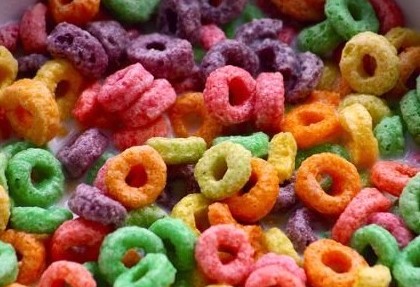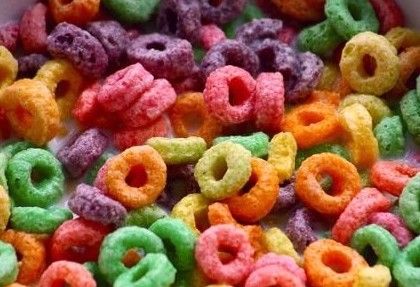Editor’s note: Several of the nation’s largest food manufacturers recently rolled out a new label called “Smart Choices.” Controversy erupted when processed junk like Froot Loops and Fudgsicles made the cut. In a Sept. 4 New York Times article, Eileen T. Kennedy, dean of the Friedman School of Nutrition Science and Policy at Tufts University and president of the Smart Choices board, defended those choices. What follows is a letter written directly to Kennedy in response to her remarks in the Times article. Should Kennedy respond, Grist would love to publish it. — Tom Philpott
 “Smart Choice”–or sugary junk?Zanastardust/FlicDear Dean Kennedy,
“Smart Choice”–or sugary junk?Zanastardust/FlicDear Dean Kennedy,
As someone who has worked on building community food security and local food systems capable of increasing access to fresh, healthy, affordable local food in vulnerable communities, I must say that I am dismayed by the decisions made by the Smart Choices Board. As the Dean of the Friedman School I’m sure you have carefully weighed the facts in this situation and have prepared yourself for the controversy now starting, prompted by the recent article in The New York Times.
However the facts do not and cannot tell the whole story. The struggle to achieve community food security and more recently, to leverage healthy food as a key strategy in the fight against child obesity and health disparities in general, is a struggle based on values as much as facts. While it may be true that the Smart Choices label adheres to “government dietary guidelines and widely accepted nutritional standards,” those facts only represent the disaggregated molecular composition of what passes for food. They have nothing to do with real food except in the laboratory. They have nothing to do with the value of eating real food or the values we need to restore healthy eating and equitable access to real food in this country.
I have, and I’m sure you have, talked to people in vulnerable communities. They have never told me about making a choice between Froot Loops and doughnuts. They tell me about wanting fresh fruits and vegetables but having no place close by to purchase them. They tell me about high prices and poor food choices in the local corner store, where they can walk, compared to the half hour trip to the supermarket where they buy the food they cook at home.
I believe you made your choice to participate in the Smart Choices program in good conscience. However as the leader of a world-class institution that sets the standard for young people learning how to critically think about food and nutrition, it seems to me that you have a duty to at least share with people your own critical thinking in making your choice, in far more depth than the NY Times article could possibly present. I may or may not agree with your rationale, but I would at least like to hear it.
With great respect,
Hank Herrera
Oakland, California




